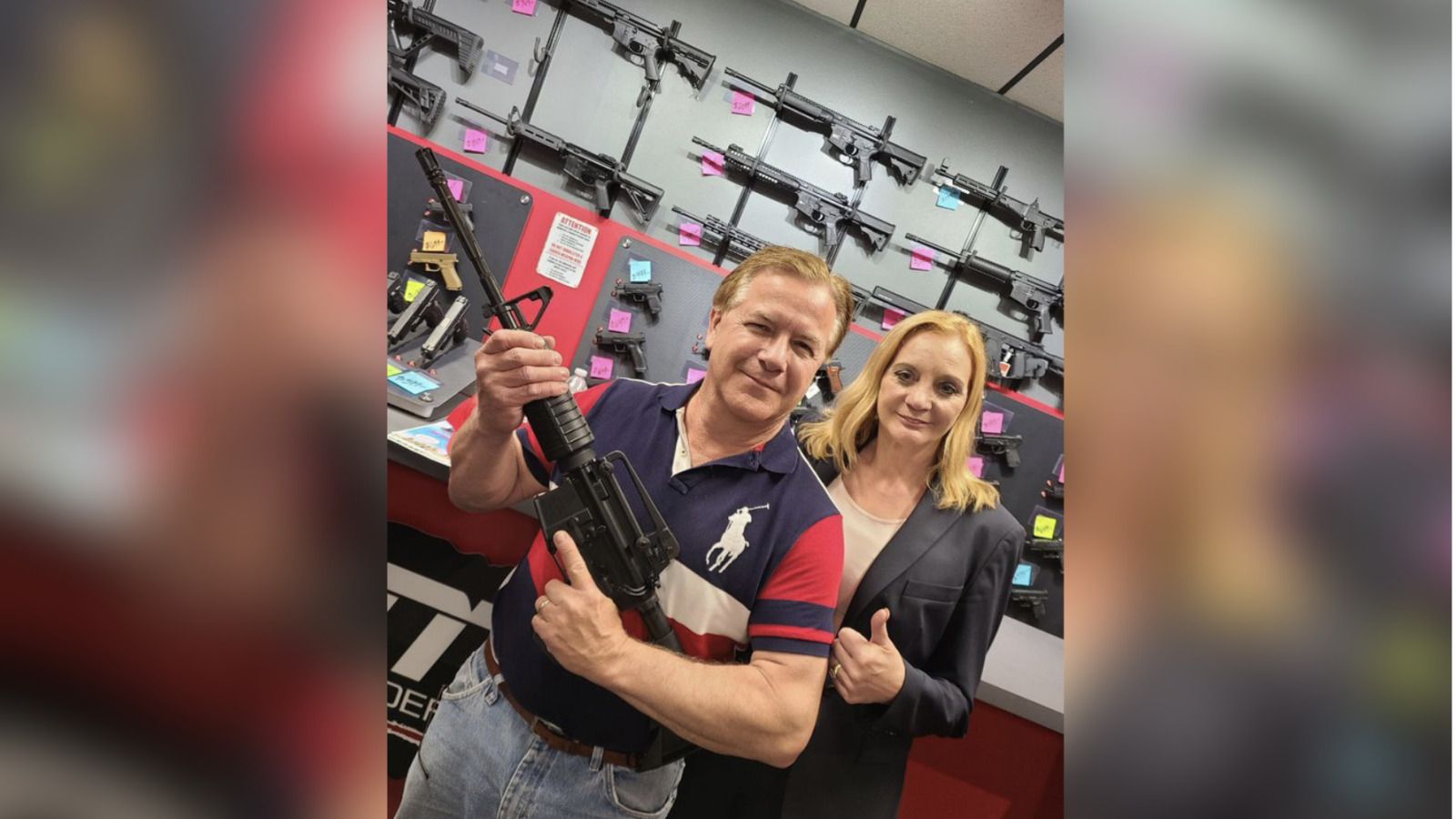This article originally appeared on WND.com
Guest by post by Bob Unruh
Couple infamously charged for defending themselves from BLM ‘protesters’
An appeals court in Missouri has ruled that Mark and Patricia McCloskey, who were targeted by an activist prosecutor for holding guns in their hands while they warned Black Lives Matter rioters to stay off their property, cannot have those guns back.
The background is that, according to legal commentator Jonathan Turley, the situation became a “cause celebre for many on the left and right.”
The two were charged by Circuit Attorney Kim Gardner, who later was ordered off the case because of ethical concerns, and Mark McCloskey eventually pleaded guilty to two misdemeanors to end the court case.
Then they were granted a pardon by the governor, and he asked for his guns back.
A ruling from the Missouri Court of Appeals said no.
According to Turley, who explained he always was skeptical of Gardner’s agenda and charges, Judges James M. Dowd, John P. Torbitzky and Michael S. Wright said the pardon means they are “excised” of guilt but that’s not the same as innocent.
They ruled that as McCloskey had pleaded guilty to misdemeanor fourth-degree assault, he forfeited ownership of the weapons.
They found that means the state law concerning the forfeiture of guns remains.
The judges explained, “While we agree that the pardon restored all of his rights forfeited by the conviction and removed any legal disqualification, disadvantage, or impediment, Missouri law is unequivocal that a gubernatorial pardon obliterates the fact of the conviction, not the fact of guilt.Thus, McCloskey’s guilty plea, for which he obtained the benefit of the State dismissing a felony charge punishable by jail time, survived the pardon and importantly, with respect to the issue at hand in this replevin action, triggered the guns’ forfeiture.”
They added, “Therefore, since McCloskey’s guilt remains, it follows that he is not entitled to the return of the weapons….”
The judges claimed that the impact of the pardon “ends at the obliteration of the conviction.”
They wrote, “The law recognizes the difference between a conviction and guilt. Here, McCloskey pleaded guilty to misdemeanor assault and voluntarily forfeited his firearms in exchange for the state dismissing a felony charge punishable by imprisonment. Thus, his inability to recover his firearms is not a legal disqualification, impediment, or other legal disadvantage that is a consequence of his conviction. Rather, the permanent forfeiture is a consequence of his guilt. And because only the conviction is obliterated by the pardon and McCloskey’s guilt remains, we find that the governor’s pardon does not entitle him to possession of his forfeited firearms….”
Turley noted, “If upheld, the decision shows the cost of a plea when an individual is also seeking a pardon. Many had long called for a pardon to be issued, but governors will often wait for the legal system to play out to some degree before intervening. The pardon does not mean that you will be treated as innocent or that your property will be returned.”
WND reported two years ago when the case result left a far-left member of Congress, who took part in some of the Black Lives Matter marches during the infamous 2020 summer of riots and destruction across America, unleashed a rant over a pardon for the McCloskeys.
At the time, U.S. Rep. Cori Bush, D-Mo., included a not-so-veiled threat.
“His day will come,” Bush said of Mark McCloskey, who with his wife, Patricia, was pardoned by Missouri Gov. Mike Parson for minor gun charges that stemmed from their decision to protect their property when one of those marches brought a crowd to their property, and they didn’t know the intention.
Rep. @CoriBush, who took part in trespassing on the McCloskeys’ property, threatens the family after they received a gubernatorial pardon: "Mark McCloskey is an absolute liar. He has spat on my name. And because of that, his day will come." pic.twitter.com/XEe5DNOxKM
— Tom Elliott (@tomselliott) August 4, 2021
Bush, who was in the march that went to the McCloskey property, charged that, “His day will come.”
None of the marchers was charged by Gardner, but she accused the McCloskeys of holding weapons.
Then she was ordered off the case by an appeals court that ruled she had tried to advance herself politically using the case.
A lawyer for the McCloskeys explained the two were armed because they were concerned because the “demonstrators” broke down a gate to get onto the private street where they lived and “threatened” them.
The McCloskeys, however, already may have had the last laugh.
In photographs posted online, McCloskey grinned from ear to ear while showing of his new AR-15. The caption says, “Checking out my new AR! #2A #MOSen”
Checking out my new AR! #2A #MOSen pic.twitter.com/Qa5UKupXSX
— Mark McCloskey (@mccloskeyusa) June 19, 2021
Copyright 2023 WND News Center



Join the conversation!
Please share your thoughts about this article below. We value your opinions, and would love to see you add to the discussion!